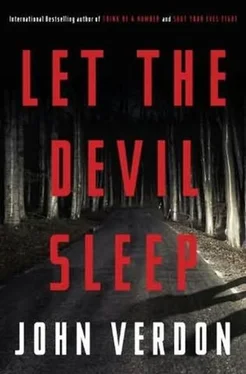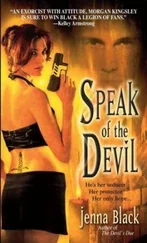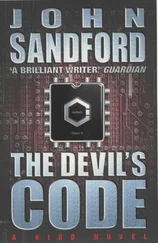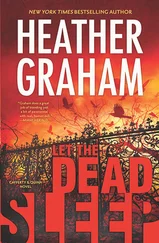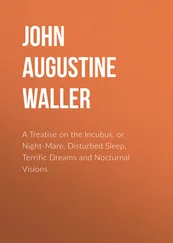“Sometimes it’s what’s missing that gets my attention. And because of the nature of the reigning hypothesis in this particular case, there’s a hell of a lot missing-unexplored avenues, unasked questions. The basic assumption from the beginning was that these murders were identical components of a philosophical statement the killer was making. As soon as everyone accepted that, no one looked at them as individual events that could have different purposes. But it’s possible the murders were not all equally important, or even all done for the same reason. You with me, Jack?”
“Hard to say. You got any specifics?”
“You ever see a movie called The Man with the Black Umbrella ?”
He’d never seen it, never even heard of it. So Gurney told him the story, ending with the “what if the snipers shot them all?” speculation he’d raised with Madeleine.
After a long silence, Hardwick asked a variant of one of Madeleine’s questions. “You’re saying that the first five attacks were mistakes ? And the shooter finally got lucky with the sixth? Help me understand this. I mean, if he was a professional, like the guys in your movie, what target ID was he given? Just that the target drove a top-of-the-line Mercedes? So he ought to drive around at night, shoot through a few Mercedes windows with the biggest fucking gun on earth, and see who he hits? I’m having trouble with this.”
“Me, too. But you know what? I’m starting to get the feeling that I might be in the right ballpark, even though I’m not sure yet what the game is.”
“Not sure ? How about not having a fucking clue what it is?”
“You need to think more positively.”
“You have any more words of wisdom, Sherlock, before I puke?”
“Just one thing. Special Agent Trout is fixated on the fact that I might have access to privileged information I’m not legally entitled to. Watch your back, Jack.”
“Fuck Trout. Is there any other secret shit you want me to shovel your way?”
“Long as you’re asking, do you have any tracer progress on Emilio Corazon?”
“Not yet. He’s managed to become a surprisingly invisible man.”
At eight forty-five, Madeleine left for her part-time job at the clinic. It was still raining. Gurney went to his computer, brought up a copy of his e-mail to Hardwick, and went over the list of questions he’d included-stopping at the one that read, “Why did the murders occur when they did, in the spring of the year 2000?” The more certain he was that the murders were essentially pragmatic, the more significant the timing element became.
Psycho-mission killings usually took one of two forms: There’s the Big Bang approach, where the shooter walks into the midst of multiple targets in the post office or the mosque and starts shooting, with no plan of escape. Ninety-nine times out of a hundred, those guys (and they’re always guys) end up shooting themselves when there’s no one else left to shoot. Then there’s the other type-the guys who dribble out their bile for ten or twenty years. The guys who like to blow off somebody’s head or hand with a letter bomb every year or two but aren’t so eager to kill themselves.
The Good Shepherd murders didn’t seem to fit either category. There was a palpable coolness, a lack of emotion, in their crisp planning and execution. In any event that’s what Gurney was telling himself when the phone rang at nine-fifteen.
Once again it was Hardwick, but his tone was heavier than before.
“Whatever game is being played in whatever ballpark, it just got nastier. Ruthie Blum has turned up dead.”
Gurney’s first thought, one that made him instantly nauseous, was that she’d been shot in the head like her husband ten years earlier. The sickening image that leaped into his mind was of her perky Yorkshire-terrier hairdo blasted into a bloody, brainy mess.
“Oh, God, no. Where? How?”
“In her house. Ice pick to the heart.”
“What?”
“You expressing surprise or bad hearing?”
“An ice pick?”
“Single thrust, upward, under the sternum.”
“Jesus Christ. When?”
“Sometime after eleven last night.”
“How do they know that?”
“She posted a Facebook message at ten fifty-eight. Body was found at three-forty this morning.”
“This is the same house where she lived ten years ago when-”
“Right. Same house. Also the same house where little Kimmy interviewed her for that thing on RAM-TV.”
Gurney’s mind was racing. “Who found her?”
“Troopers out of the Auburn station in Zone E. Long story. Friend of Ruth’s from Ithaca, up late, read her Facebook message. Found it disturbing. Responded to it on Facebook, asking Ruthie if she was all right. Got no answer back. E-mailed her, got no answer to that either. Started phoning her, no answer, only voice mail. So the friend gets panicky, calls the local cops, gets passed on to the sheriff’s office, eventually gets passed on to Auburn. Auburn contacts a cruiser in the vicinity. Trooper comes by the house, everything looks peaceful, no problem, no signs of any disturbance, no-”
“Wait a second. You have any idea what Ruth Blum’s original message said that started all this?”
“I just e-mailed it to you.”
“How’d you manage that?”
“Andy Clegg.”
“Who the hell is Andy Clegg?”
“Young guy up in E Zone. You don’t remember him?”
“Should I?”
“The Piggert case.”
“Okay. Now the name rings a bell. But I can’t picture a face.”
“His first assignment out of the academy-in fact, the first job he caught on his first day on the job-was to respond to my call for support when I found my half of Mrs. Piggert’s body. That turned out to be Andy’s first official vomit opportunity. And he took full advantage of it.”
The infamous Peter Piggert incest-murder case was the beginning of the edgy but productive relationship between Hardwick and Gurney. Gurney was at the NYPD then, and Hardwick was with the NYSP. They were each investigating aspects of the Piggert case that fell within their separate jurisdictions, when a grotesque bit of serendipity brought them together. Over a hundred miles apart, on the same day, they each discovered half of the same body.
“Young Andy Clegg met us both at a joint get-together after you nailed the elusive Mr. Piggert, the mother-fucking mother killer. Andy was mightily impressed with your skills and, to a lesser extent, with my own. We stayed in touch.”
“All this adds up to what?”
“When the basic facts on the Blum ice-pick homicide came in through CJIS this morning, I gave Detective Clegg a friendly call and got the whole story. I figured it was now or never. As soon as Trout gets hold of this and figures out the implications, he’ll move in and declare the homicide to be part of his ongoing Good Shepherd investigation and slam the door.”
“Which brings us back to my question. What did Ruth’s-”
“Check your e-mail.”
“Right.”
Gurney laid down the phone and opened his e-mail. There it was.
Posted by Ruth J. Blum:
What a day! I spent so much time wondering what the first episode of The Orphans of Murder would be like. I kept trying to remember the things Kim had asked me when she came here. And my answers. I couldn’t remember them all. I was hoping that I had managed to express what I really felt. I believe, like Kim says, that TV sometimes misses the point. They pay attention to sensational things too much, not the real things that matter. I was hoping that The Orphans of Murder might be different, because Kim seemed different. But now I don’t know. I was a little disappointed. I think they must have cut out a lot of our interview to make room for their “experts” and the commercials and all the other stuff. I’m going to call Kim in the morning and ask about it.
Читать дальше
